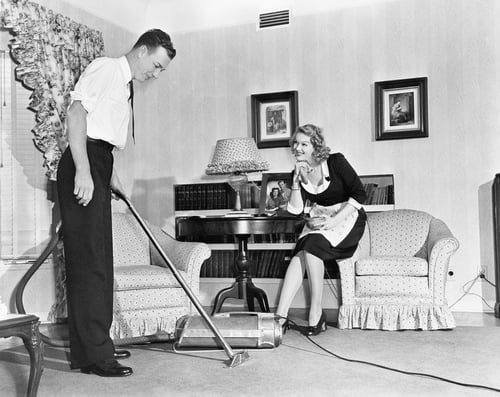 by Alex Brown
by Alex Brown
Director of Operations
A2L Consulting
In my last article on business development I discussed the traits of great business developers I like to see when hiring. Today, I focus on traits I like to avoid.
If you close your eyes and try to picture a business development professional, what do you see? Depending on your age and whether you work in a law firm or elsewhere, some of the common images are:
 Bud Fox from Wall Street
Bud Fox from Wall Street
 Jerry Maguire
Jerry Maguire
 Willy Loman from Death of a Salesman.
Willy Loman from Death of a Salesman.
Almost always you think of a charming and intelligent person who's fun to talk to -- someone you look forward to seeing at a networking event, someone with credibility. But internally, what do people think about business development professionals:
 Snake oil seller
Snake oil seller
 Used car salesman
Used car salesman
 Don’t take your eyes off that one…
Don’t take your eyes off that one…
But these people shouldn't be on your team. You need to avoid the following qualities in building your business development staff whether in a law firm or in a professional services firm:
- Limited follow through or lack of attention to details. Many times, a lawyer will win or lose a case on the basis of a small detail of wording. The same is true for business development. Your BD staff is out pitching the amazing capabilities of your firm. What promises are they making? What needs are not being met because the staff doesn't understand what is requested by the client? How many unexpected bumps happen because they did not ask all the questions? Charisma will only get you so far, Follow-through and detail are what closes the deal.
- Absence of structure. To some people, structure comes naturally, but it can also be learned. People can learn how to make lists, follow directions, and stick to a plan. But some people fly by the seat of their pants, don't know how to follow up, have poor internal communication skills, and end up unprepared for unforeseen events. Structure is the ability to see the finish line and to navigate to the goal.
- Failure to think like an owner. Some business developers "leak value." That refers to the loss of profit resulting from a gap between what the developer supplies and what is needed. Do they over-think what is "fair" for the client rather than what's good for the firm? Do they make too many assumptions about what is important to the client and give a lot of terms away? Do they just want to close the deal at all costs versus thinking through what is actually good for the firm? Bad deal people don't think like a business owner. They treat the company's money as something to give away as "extra value" in a negotiation. Great BD professionals never aim low.
- Difficulty "getting it." Bad BD professionals become too dependent on others in the company rather than building up their own skill sets. Sometimes, for example, a term that's crucial to the business is buried or hidden as legalese or "technical specs." A great deal person will be fully conversant with these concepts. A bad BD professional says "I don't know." A great BD professional says "I don't know now, but I will find out."
- The "Me syndrome." Are your BD people known by their name only, or as affiliated with the firm? Do they network for themselves, but make contacts that never get to the database? Are they the type that keeps things in their head rather than share? If so, they may be the type to leverage a deal for personal benefit first. When closing a deal, some BD professionals set unreachable expectations by mentioning terms that the company can't back away from. And they do this without any internal discussion or approval, all in the name of closing a deal regardless of the cost to the firm. A great BD professional knows when to walk away from a deal.
- Projecting a lack of trustworthiness. Good BD professionals can flip the switch, so to speak. In this profession, you have to spin at times to external clients. But you have to know when to turn it off. Great BD professionals never seem like they are spinning or selling, even when they are.
Other A2L Consulting articles related to professional services sales, business development and rainmaking:
- 8 Traits of Great Business Developers (In or Out of Law Firms)
- The Top 10 Tips for Selling Professional Services
- DOWNLOAD: The real value litigation consultants give litigators
- 17 Tips for Great Preferred Vendor Programs
- 12 Alternative Fee Arrangements We Use and You Could Too
- 6 Lessons Our Trial Consultants Learned from the Sales Process
- Mid-2014 Economic Outlook for the Litigation Industry
- 9 Things Outside Litigation Counsel Say About In-house Counsel
- 10 Ways Timely Payment Helps You Save Money On Litigation Consulting
- Learn How to Get Value in The New Normal Legal Economy





Leave a Comment